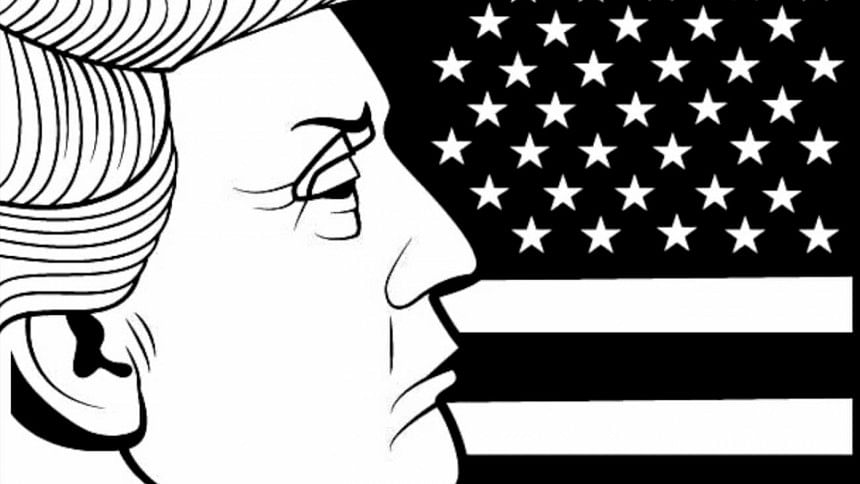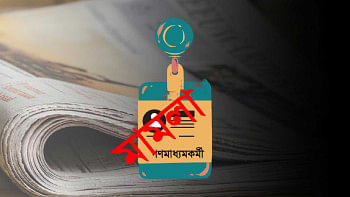White House under siege: The Muscovite candidate?

It appears the Republican Party is losing any resemblance to a traditional western political party. Instead, turning into something more commonly found in the developing world: a platform to support the ego, appetites and interests of one man and his family."
— Fareed Zakaria (CNN host and columnist), May 16, 2017
"Patriotism means to stand by the country. It does not mean to stand by the President."
— President Theodore Roosevelt
In any genuine democracy, after a tough electoral struggle, the first challenge of the new incumbent is to unite the nation and reconcile those who did not vote for the winning side. Mr. Trump seems to have singularly failed in this regard. The gap in approval ratings among Democrats and Republicans is probably the widest ever seen.
Some degree of reconciliation would help refocus attention on the Trump policy agenda, which may require some support from political opponents and the federal bureaucracy. This is especially true in the American system of government where the "winner takes all" principle does not apply, due to the separation of powers between the three branches of government, and a federal structure which gives considerable power to state and local governments.
The features that promote some balance in the swing of the political pendulum in the United States seem to be under challenge. One party now controls both the House of Representatives and the Senate, two-thirds of governorships and legislatures, and has been responsible for appointing a majority on the Supreme Court. On the other hand, the federal bureaucracy certainly operates under the direction of Trump appointees, but their cooperation is important and unquestioning loyalty to the incumbent of the White House cannot be assumed. Unlike the employees of Trump Inc., federal employees cannot be fired at will and Mr. Trump is discovering that they are unwilling to abide by the standards of obedience he could demand from his company staff.
There is one issue on which Mr. Trump has succeeded in uniting the nation. There is deep concern across party lines about the influence of a foreign power such as Russia on the outcome of the last presidential election, and the Trump Administration. Citizens of any self-respecting nation such as the United States find it unacceptable that their leaders would be controlled by or beholden to any foreign power. This was the theme of the 1962 film, The Manchurian Candidate, about an American politician brainwashed by a foreign power. Recent events such as the firing of FBI Director Comey have heightened concerns about the Trump Administration's Russian links and a possible cover-up ("an obstruction of justice") to a level where the appointment of a Special Counsel on May 18 by the Deputy Attorney General was welcomed by leaders of both parties.
Mr. Trump's open admiration of authoritarian rulers in regimes operating under "democratic" systems such as those of Russia and Turkey is well-known. This in itself was a cause of unease to many Americans as the operating principles of these regimes stand in stark contrast to the liberal democratic values championed by the United States. However, the line was crossed with the alleged sharing of classified information by the president with important Russian visitors at the White House and reports following the Comey dismissal regarding attempts to suppress the FBI investigation of former National Security Advisor General Flynn.
President Trump must be exasperated that his policy agenda has suffered a setback due to the Russia issue. The appointment of an independent Special Counsel (a respected former head of the FBI) may well provide an opportunity to exonerate the Administration in a credible manner and restore focus on policy issues. One silver lining from the Administration's perspective is that the appointment allows the White House to deflect awkward questions by refusing to comment on an ongoing investigation by the Special Counsel.
Comparisons to the Watergate scandal that brought down President Nixon have been made. At that time, the Special Prosecutor (similar in role to a Special Counsel) Archibald Cox zealously pursued the trail of criminality reaching to Nixon. Attorney General Elliot Richardson and Deputy Attorney General William Ruckelshaus - both Nixon appointees - chose to resign rather than fire Cox as the president had ordered. The role of Senator Howard Baker at that time is also noteworthy. He was the ranking Republican on the special senate committee convened to investigate the 1972 break-in of the Democratic National Committee headquarters in the Watergate building in Washington D.C. Baker had asked the famous question (now seeing a revival in the media), "What did the President know, and when did he know it"? As a Nixon ally, Baker's original intention was to exonerate the president by pinning the blame on subordinates. Baker turned against fellow Republican Nixon when the truth became clear.
History suggests that Mr. Zakaria's comment about Republicans is unfair. If the evidence is sufficiently strong, the leaders of the party tend to act in the interests of the Republic and not the party. The Republican Party is not a monolithic entity and its leaders are certainly not under the thumb of any Supreme Leader. Unlike the "banana republics" of Central America - where rulers were maintained in power for the benefit of foreign commercial interests - in the United States, there are powerful political forces and leaders of independent mind who can and will oppose the president if the nation's sovereignty and interests are threatened.
Detractors of the United States point to the Trump presidency and the chaos in the White House to denigrate the quality of its political processes. However, recent events should actually heighten admiration for that nation. The greatness of American democracy lies not in the fact that mistakes are never made in policy or in the choice of leaders or even that the democratic process operates perfectly. What sets the United States apart are three things: First, the courage and commitment of citizens and public officials (such as Elliot Richardson and Howard Baker of Watergate fame) who look beyond personal loyalties and partisan concerns when the national interest is at stake; Second, stabilising features in apolitical framework based on checks and balances and the separation of powers, and; Third, a free press and media composed of journalists of courage and conviction. Whatever problems the United States faces, these three factors ensure the generation of forces for honest introspection, self-correction and ultimately, renewal.
The writer is IMF Macro Fiscal Advisor, Ministry of Economy and Finance, Cambodia.

 For all latest news, follow The Daily Star's Google News channel.
For all latest news, follow The Daily Star's Google News channel. 



Comments